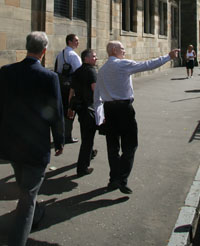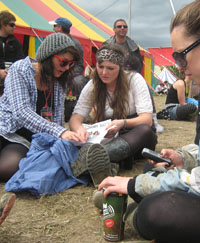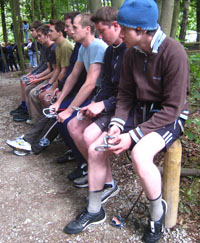Assessement
The first useful step once the scene has been set and information collected is assessment. This can be an assessment on how to gather and collate information, what further information might be required or a needs assessment.
Explore and Express:
Thus assessment evolves from researching the existing situation and then identifying key or current issues. Tikambilanie stresses the importance of participation so that the findings aren't biased by external influences. Using simple tools and techniques coupled with the subtlety that comes from experience and expertise the true situation of the target group or community can be explored and expressed. A number of such tools are outlined below.
- Direct Observation
- Beware of myths, gossip, rumour.
- Religion, status - Dress.
- Body language
- Activity times
- Smells and other senses!
- Mapping
- Where do people go
- Different maps from different community groups
- Transect Walk
- Walk through area with different community members
- Identify certain key community elements.
- Social maps
- Interview
- Listen. Semi-structured, guided, limited pre-defined questions.
- Hold interviews with
- Individuals
- Key individuals with specialist knowledge
- Groups
- Develop focus points, specific topics
- Diagrams
- Venn
- Useful to represent peoples perception of the importance / effectiveness of organisations / relationships.
- What is considered important.
- Existing interactions.
- Flow Diagram
- Cause and effect.
- Impact diagram.
- Daily Activity Charts
- Daily labour patterns and other activities.
- Comparative analysis between different individuals.
- Days of week, seasons can be explore
- Historical Profile
- Reveals important information that can help us understand the present situation better.
- Summary of important past events that shaped the present situation.
- Information collected from key individuals (old people, community leaders, school teachers, government workers) or secondary sources (books, reports, archives).
|





